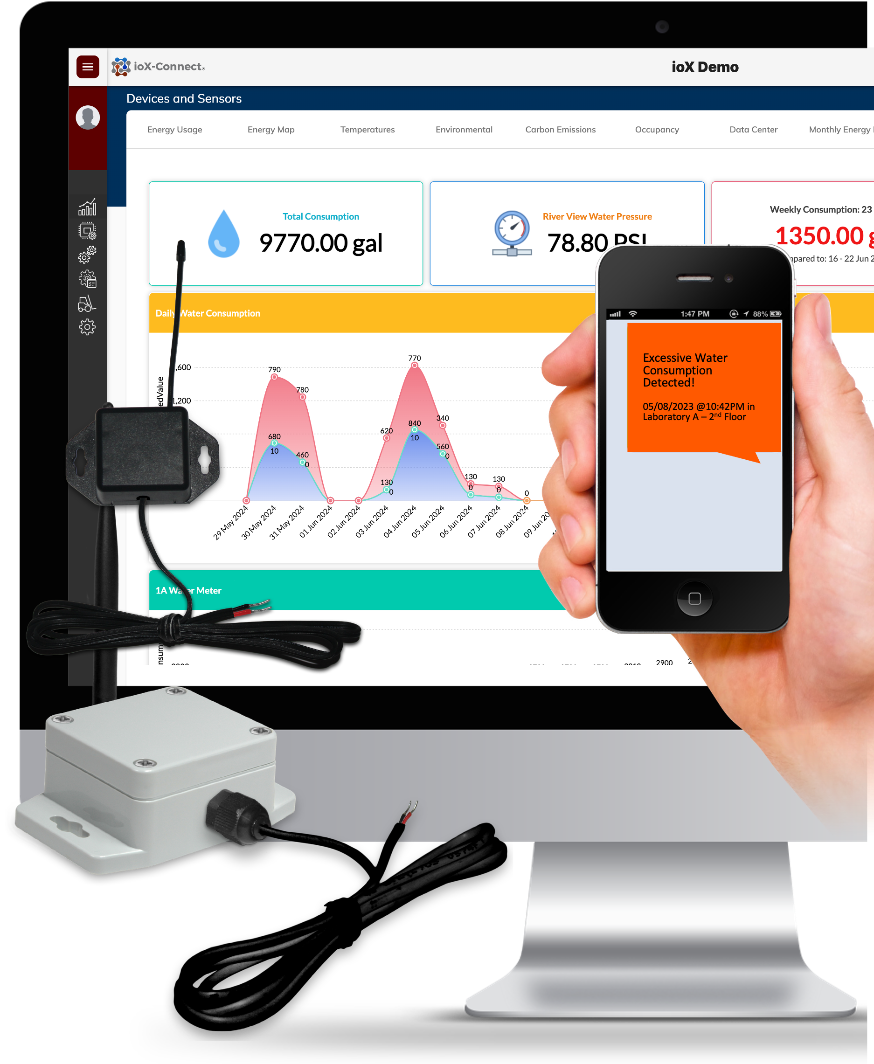Water treatment facilities are essential to public health, industrial processes, and environmental protection. Yet managing these complex systems efficiently requires more than just manual oversight—it demands real-time insight. That’s where wireless sensor technology comes in. By integrating IoT-enabled sensors into water treatment infrastructure, facilities can drastically improve operational efficiency, ensure compliance, and reduce downtime.
In this article, we’ll explore how wireless sensors and IoT monitoring systems are transforming water treatment facilities and helping operators make smarter, data-driven decisions.
Why Water Treatment Facilities Need Real-Time Monitoring
Water treatment operations involve a delicate balance of variables, from flow rates and chemical dosing to pressure, temperature, and pH levels. Relying solely on manual data collection or outdated control systems increases the risk of:
-
Equipment failure and unexpected downtime
-
Inaccurate dosing of treatment chemicals
-
Environmental non-compliance due to missed alerts
-
Energy inefficiencies across pumps, filters, and aeration systems
Wireless sensors and remote monitoring solutions provide a cost-effective, scalable way to address these challenges—no hardwiring or costly infrastructure overhauls required.
Key IoT Sensors for Water Treatment Optimization
1. Wireless Pressure Sensors
Maintaining correct pressure in pipes, tanks, and filters is vital to keeping water treatment processes running smoothly. Wireless pressure sensors can:
-
Detect pump failures or leaks instantly
-
Monitor pressure variations in real time
-
Trigger alerts for preventive maintenance
With remote access via cloud-based software, technicians can quickly identify issues and reduce response times—preventing small problems from escalating into system-wide failures.
2. Flow Meters and Pulse Counters
Accurate flow measurement is essential for ensuring water moves efficiently through the treatment process. ioX-Connect’s pulse counters and flow interface meters allow facilities to:
-
Monitor real-time flow from legacy meters
-
Track water consumption across multiple zones
-
Analyze usage patterns to optimize system performance
These interface sensors are ideal for facilities that use traditional flow meters but want modern data access without replacing existing equipment.
3. Temperature and Humidity Sensors
Environmental conditions within treatment facilities directly affect equipment longevity and process efficiency. Wireless temperature and humidity sensors can:
-
Maintain optimal conditions for microbial treatment processes
-
Monitor equipment rooms to prevent overheating
-
Track ambient conditions that could impact water quality
This data helps facility managers ensure equipment operates within safe thresholds and supports regulatory reporting efforts.
4. Gas Detection Sensors
Some treatment processes produce hazardous gases such as hydrogen sulfide (H₂S) or carbon monoxide (CO). Wireless gas sensors from ioX-Connect help:
-
Ensure worker safety by monitoring for toxic gas exposure
-
Send real-time alerts when thresholds are exceeded
-
Comply with occupational safety and environmental regulations
These sensors are crucial for protecting both personnel and the surrounding environment.
Benefits of Wireless Sensor Integration in Water Treatment Facilities
✅ Remote Access & Real-Time Alerts
With wireless sensor data accessible through platforms like ioX-Connect, operators can view and manage system conditions from any location. Automated alerts notify staff of abnormal readings immediately—reducing downtime and preventing costly emergencies.
✅ Predictive Maintenance & Reduced Downtime
Sensor data trends can identify wear-and-tear patterns, enabling predictive maintenance. This minimizes unexpected failures and extends equipment life.
✅ Improved Regulatory Compliance
Real-time data logging helps maintain compliance with environmental regulations by ensuring accurate record-keeping and immediate corrective actions.
✅ Cost Efficiency & Energy Savings
By optimizing system performance based on real-time data, facilities can reduce energy consumption, chemical usage, and manual labor costs.
Bridging the Gap with Legacy Equipment
One of the biggest advantages of using ioX-Connect’s wireless sensors is their ability to integrate with existing infrastructure. Instead of replacing functional (but non-connected) equipment, facilities can install interface sensors—like pulse counters—to bring data from legacy meters into the cloud. This IoT retrofit approach allows for gradual modernization without disrupting operations.
Conclusion
Wireless sensor technology is revolutionizing how water treatment facilities operate. With real-time monitoring, actionable insights, and scalable IoT solutions, plant operators can improve efficiency, reduce costs, and ensure compliance like never before. Whether you're starting with just a few pulse counters or rolling out a full suite of wireless monitoring tools, embracing IoT is the first step toward a smarter, more transparent water treatment operation.
Get Started with ioX-Connect’s Wireless Sensor Solutions
From pressure and flow monitoring to environmental and gas detection, ioX-Connect offers the full spectrum of wireless sensors built for water treatment environments.
👉 Explore Wireless Sensors →
👉 Learn More About Our Water Monitoring Solutions →
ioX-Connect
ioX-Connect is a comprehensive IoT Management Platform designed to streamline the monitoring of facilities and equipment.

